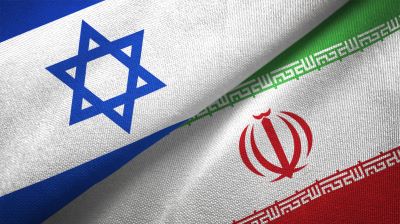Context-
The enduring conflict between Israel and Iran is deeply rooted in historical events spanning millennia, with significant implications for regional stability and global geopolitics. Several factors have contributed to the entrenched enmity between these two nations, from the ancient Babylonian king Nebuchadnezzar's conquest of Jerusalem to the present-day geopolitical maneuvering.
Ancient Origins and Legacy of Nebuchadnezzar:
The conflict traces its origins back to 586 BC when Nebuchadnezzar II of Babylon besieged Jerusalem, destroyed the Jewish temple, and exiled its citizens to Babylonia. This event, as described in Jewish scripture, marked a foundational grievance that has resonated throughout history. Nebuchadnezzar's conquest sowed the seeds of animosity, establishing a legacy of tension and conflict that persists to this day.
Over centuries, this historical episode has been mythologized and memorialized in both Jewish and Persian narratives, shaping cultural identities and narratives of victimhood and vengeance. The memory of Nebuchadnezzar's conquest remains a potent symbol in the collective consciousness of both Jewish and Persian communities, perpetuating a narrative of historic wrongs and deep-seated animosity.
Modern Geopolitical Developments:
In contemporary times, the relationship between Israel and Iran has been characterized by strategic rivalry, ideological differences, and competing regional ambitions. The establishment of the Islamic Republic of Iran in 1979 marked a turning point, ushering in an era of renewed hostility towards Israel. Iran's revolutionary rhetoric and its alignment with anti-Israel proxies such as Hezbollah and Hamas have fueled tensions and exacerbated the conflict dynamics.
The strategic calculus of both nations has been shaped by geopolitical considerations, religious ideologies, and regional power dynamics. Iran's pursuit of nuclear capabilities and its support for militant proxies have been perceived by Israel as existential threats, further heightening tensions and prompting Israeli countermeasures. The conflict has evolved from historical grievances to contemporary strategic competition, with implications for regional stability and global security.
Religious and Cultural Dimensions: From Khaybar to Jerusalem
Religious and cultural factors have played a significant role in intensifying the conflict between Israel and Iran, adding layers of complexity to the geopolitical rivalry. From ancient battles to contemporary ideological confrontations, religious narratives have been instrumentalized to mobilize support and justify actions.
Islamic Memory and Anti-Israel Sentiment:
The historical victory of Muslims over Jews at Khaybar in 628 AD has become a symbolic touchstone in Islamic narratives, evoking themes of triumph over perceived adversaries. This event, commemorated in chants and rhetoric, underscores a legacy of confrontation and enmity that resonates in contemporary anti-Israel sentiment across the Muslim world.
Iran's revolutionary ideology has harnessed religious symbolism to galvanize support for its anti-Israel stance, framing the conflict as a struggle for justice and liberation. The creation of the "axis of resistance" comprising Hezbollah, Hamas, and other groups reflects Iran's strategy of leveraging religious solidarity to challenge Israel's regional dominance.
Jewish Identity and Zionism:
For Israel, the conflict is intertwined with the Zionist movement and the quest for a Jewish homeland. The experience of persecution, culminating in the Holocaust, galvanized the Zionist movement and reinforced the narrative of Jewish self-determination in the land of Israel.
The establishment of Israel in 1948 and subsequent conflicts with Arab neighbors further entrenched the Zionist ethos, shaping Israeli perceptions of security and territorial integrity. The religious significance of Jerusalem, revered as the site of the Jewish temple, adds a spiritual dimension to Israeli national identity and underscores the stakes in the ongoing conflict with Iran and its allies.
Iran's Regional Ambitions and Proxy Warfare:
The contemporary conflict dynamics between Israel and Iran are shaped by strategic imperatives, regional alliances, and geopolitical rivalries. From nuclear ambitions to proxy warfare, both nations pursue complex strategies aimed at securing their interests and projecting influence in the Middle East.
Iran's support for non-state actors such as Hezbollah, Hamas, and the Houthis reflects its strategy of asymmetric warfare and regional power projection. By cultivating proxies across the Middle East, Iran seeks to challenge Israel's military superiority and extend its influence in strategic arenas.
Israel's response has been characterized by preemptive strikes, covert operations, and diplomatic efforts to counter Iran's regional activities. The conflict has thus evolved into a multi-dimensional struggle involving cyber warfare, missile technology, and diplomatic maneuvering.
Implications for India
The potential repercussions of an open conflict between Israel and Iran would significantly impact India, particularly affecting Prime Minister Narendra Modi’s proactive "act west" policy. Besides the expected surge in oil prices, such a conflict could instill insecurity among India's extensive expatriate population in West Asia, which remits approximately $40 billion annually. Moreover, it could undermine the carefully crafted multilateral initiatives like I2U2 (India, Israel, the United Arab Emirates, and the U.S.) and the India-Middle East-Europe Economic Corridor.
Furthermore, given India's substantial Muslim community, as well as being home to the world's third-largest Shia population after Iran and Pakistan, any escalation in the conflict could have domestic ramifications. These factors underscore the imperative for India to advocate for de-escalation, emphasizing the importance of averting direct conflict between Israel and Iran, and relegating historical conflicts like Nebuchadnezzar and Khaybar to the annals of history.
Conclusion
In conclusion, the conflict between Israel and Iran is a complex interplay of historical legacies, religious narratives, and contemporary strategic calculations. From ancient grievances to modern rivalries, the conflict underscores enduring tensions and competing visions of regional order. The resolution of this conflict requires nuanced diplomacy, regional cooperation, and international engagement to address underlying grievances and promote sustainable peace in the Middle East.
|
Probable Questions for UPSC Mains Exam- 1. Discuss the historical origins of the conflict between Israel and Iran, tracing its roots back to ancient times. How have these historical events shaped contemporary geopolitical dynamics in the Middle East? (10 marks, 150 Words ) 2. Examine the religious and cultural dimensions of the conflict between Israel and Iran, focusing on the role of historical narratives and ideological factors in fueling tensions. How do these dimensions influence regional alliances and strategic calculations in the modern era? (15 marks, 250 words) |
Source- The Hindu







